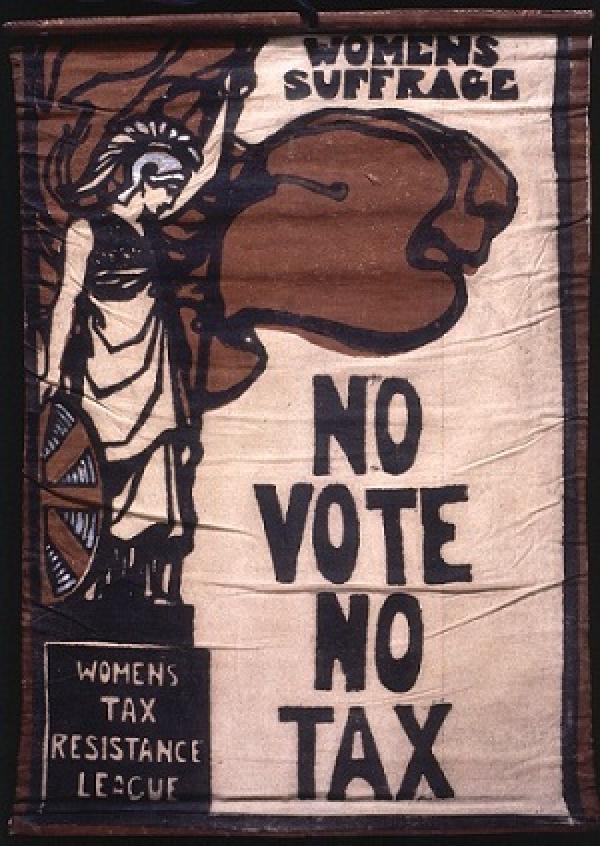
No Vote, No Tax – The Women’s Tax Resistance League
This year marks the centenary of the passing of the Representation of the People Act 1918. This was the first Act which gave women the right to vote, provided that they were over 30 years old and met certain property qualifications. To celebrate this centenary, and to mark this year’s International Women’s Day, ATT Technical Officer Helen Thornley has given a number of presentations on her extensive research on the Women’s Tax Resistance League.
Founded in 1909, the Women’s Tax Resistance League was part of the suffrage movement and campaigned on the subject of tax. League members felt keenly the injustice of paying tax on their income, homes and servants when they lacked a parliamentary vote.
Members of the League included doctors, artists and writers and also, crucially, the first women admitted to a professional accountancy body – Ethel Ayres Purdie. Her tax expertise was crucial to the work of the League.
Helen’s talk is based on her extensive study of the League’s archives held at the Women’s Library at the London School of Economics. It covers the women (and men) involved in the movement, the taxes they resisted and the tax cases that they took. You can watch Helen’s full presentation to the Women in Tax network to mark International Women’s Day below.
Helen has been extensively quoted in Tax Notes in William Hoke’s article “How Women Wove Tax and Suffrage Together” published 14 May 2018. The publisher Tax Analysts have kindly given us permission to reproduce the article here. Hoke looks at tax resistance in a number of countries including the UK, USA, Canada, Australia, New Zealand and India.
You can also find links to extracts from Helen’s presentation below:
Tax resistance and the suffrage movement
The importance of tax to the suffrage movement can be traced from the first petition to Parliament for the vote by Mary Smith in 1832 to various individual acts of tax resistance and finally to the formation of the League in 1909 - the same year that Lloyd-George introduced his famous ‘People’s Budget’.
Ethel Ayres Purdie and Margaret Kineton-Parkes
Ethel Ayres Purdie was the first women admitted to a professional accountancy body when she joined the London Association of Accountants in 1909. An expert in the tax affairs of single and married women, her skills were of huge importance to the League.
Margaret Kineton-Parkes was the League secretary and travelled the length and breadth of the country campaigning for the League.
Princess Sophia Duleep Singh resists her licences
One of the high profile members of the League, the contribution of suffragette Princess Sophia Duleep Singh to the suffrage movement is only now beginning to be recognised. In this extract Helen talks about the types of taxes that the League resisted and Sophia’s own tax resistance.
The Imprisonment of Clemence Housman
One of the younger sisters of the well-known poet A E Housman, Clemence went to great lengths to resist her taxes, ultimately ending up in prison.
The Taxation of Married Women and the Mark Wilks Case
In the early 1900s married women were, for tax purposes, classed with infants, lunatics and the insane. The League campaigned strongly for separate taxation of husband and wife. The case of Mark Wilks, who was imprisoned for the tax resistance of his wife Dr Elizabeth Wilks, illustrates how the income tax laws of the time conflicted with the rights women had gained from the Married Women’s Property Acts of the late 1800s.















